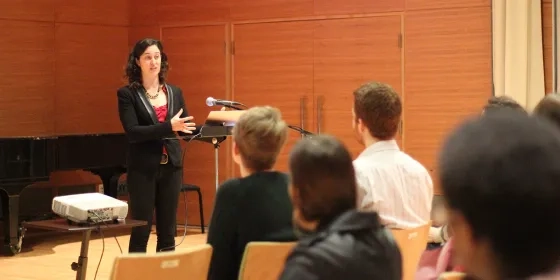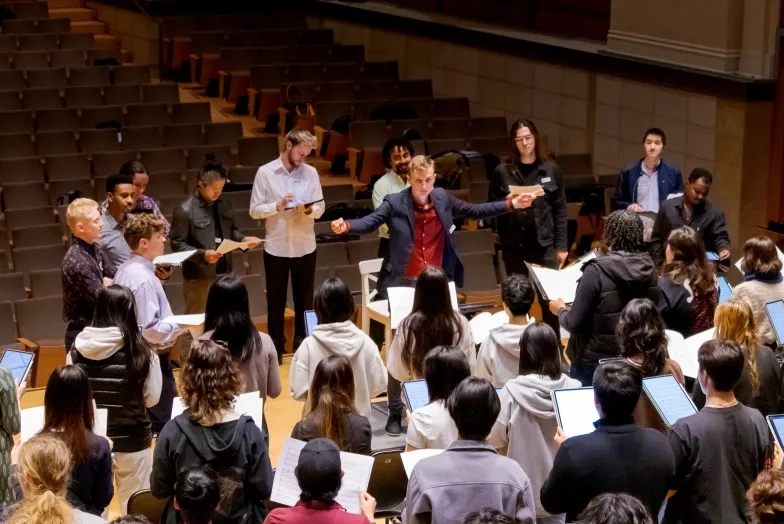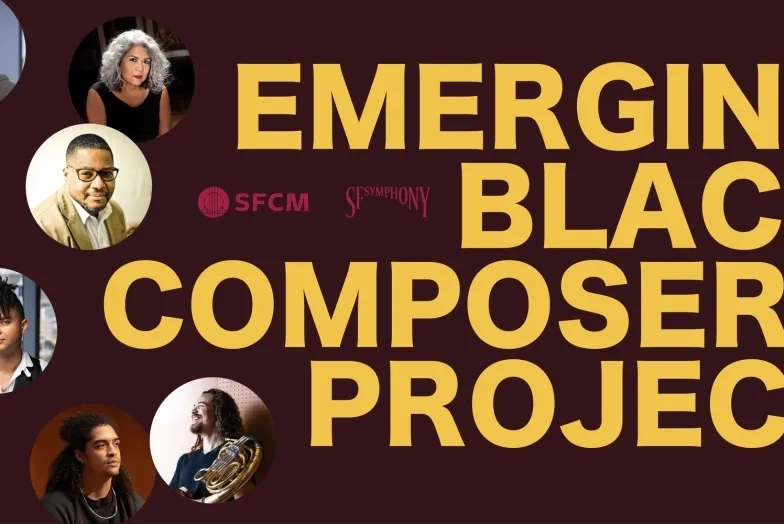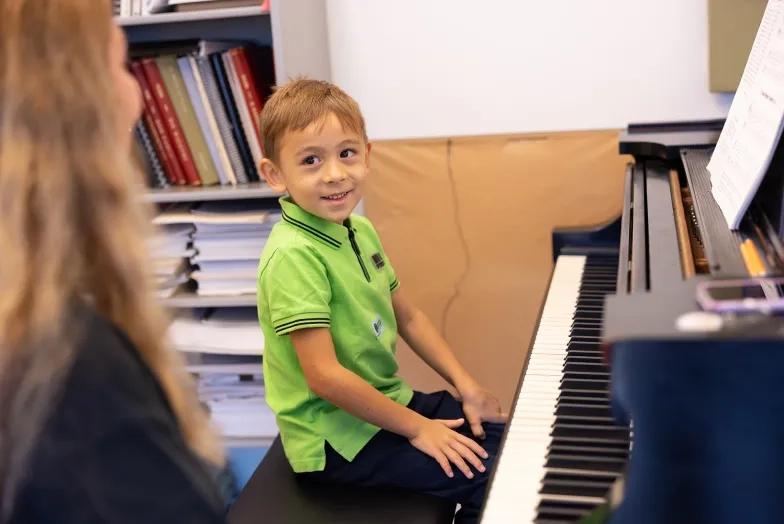SFCM Talks: The Role of Arts Journalism
Chloe Veltman, Senior Arts Editor at KQED, visited SFCM early this February to give a talk titled “How to Get Noticed” to set the business mindset that students need as they develop programs and concert series of their own. Over her career, Veltman has contributed to media outlets including The New York Times, Los Angeles Times, and The Wall Street Journal, in addition to authoring the blog lies like truth, and worked as an associate producer and screenwriter for Keeping Score with Michael Tilson Thomas and the San Francisco Symphony.
Veltman started her talk by reading several recently rejected journalistic proposals, all of which were valid and projects in their own right, like the world premiere of Dream of the Red Chamber at the San Francisco Opera. What was it about these projects that didn’t make them appealing options as journalistic features? What was it about these projects that didn’t allow them to come to fruition as journalistic features? It became clear that while many had interesting angles to explore, they lacked a connection to the present moment and current political climate. “We’re living in a world where, in the foreseeable future, we can’t in good conscience take a business-as-usual approach,” explained Veltman. “We can’t do this as arts journalists and, as I’m going to suggest today, we can’t as artists either. Why? Because regardless of your political beliefs, it’s impossible not to see that every day brings news of new protests against the Trump administration, immigrant ban policy, climate change denial and other issues. The reactions to all of this are international in scope.”
Veltman did not suggest doing away with the old, but simply recommended changing at least one aspect of the performance. She explained that no matter what one’s political views are, it is a crucial aspect of the artist’s life to be a part of the dialogue between the world around you, the press, and the audience. Changing the frame can be anything from bringing classical music to the people in schools or public parks, to holding a benefit concert, to prominently featuring female or Muslim composers, to composing a work in reaction to the world around you. Student Andrew Grishaw ’17 attended the talk and said, "The talk that Chloe Veltman gave was intriguing because of the connection she made between the arts and the political climate. Specially, we spoke about how to connect to all sides of the political spectrum through the work that we do. This is something I believe is vital to the improvement of our communities and our nation."
Veltman emphasized her conviction about “how artists and arts journalists can learn from each other to encourage the creation of art that’s meaningful and puts culture in the center of our eyes rather than the fringes, that makes art something that we need to have rather than a nice luxury.” Violist Anna Heflin ’16 attended the talk and was “happy to hear that arts journalists want us as musicians to continually change the frame, because that gives us a lot more artistic freedom and supports our endeavors.”
This month, current SFCM students, including vocalist Jasmine Johnson ’18, are taking Veltman’s advice, joining with faculty and alumni to present STRANGE FRUIT, an evening of music, poetry, and original works celebrating the black experience. Its mission is to promote multicultural, experiential arts, and the positive image of ethnic diversity at SFCM. On STRANGE FRUIT, Johnson says, “Raising black awareness for the creations and inventions of black Americans should happen everyday, not just during black history month, but that may never happen. That being said, art is the creative expression that unites us as humans. I believe it is important for the arts to promote a positive image of creative ethnic diversity to reflect the political climate in America because art is a universal language that has the ability to change the world.”



